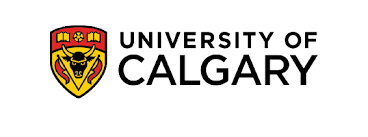UCalgary Collaborates with Covalent for Innovative Blockchain Data Collaboration
The University of Calgary has become the first university to become a validator on the Covalent Network. Alfred Lehar, PhD, a professor in the Finance area of the Haskayne School of Business, and a group of research assistants will be responsible for collecting data from a blockchain and sending it to the Covalent Network, where participants parse and use the data. The university and Covalent are mutually excited because Covalent grows as a network with another validator ensuring long-term stability, and UCalgary gains access to hard-to-access chain data that can be used for research and teaching students about blockchains hands on. By being a validator, the university also receives staking rewards in the form of Covalent cryptocurrency (CQT), which can be used to fund research. Covalent has endowed the university with 175,000 CQT, or approximately $44,000 CAD, to kickstart this collaboration.
“For us, it’s an opportunity to show students this cutting-edge technology, grow the new economy, and collect data that furthers deep research.”
Dr. Alfred Lehar, professor, Haskayne School of Business, University of Calgary
Blockchain data is publicly available, but difficult to access. Lehar and his team do the heavy lifting of accessing and pulling the data. They then provide the data to the Covalent Network in an easier-to-access format. Lehar says it is technically very complex to pull this data, which has billions of individual data points, and put it into a user-friendly interface. Once the data has been sent to the network, users are able to see live network activity – everything from transactions to game quest completions. Beyond just seeing how much they have in their wallets, this data helps users see what their tax obligations may be, calculate the profit and loss of their investment, and track the growth of their blockchain project.
“The future of blockchain rests with the immediate availability of live and historical data in a multitude of formats that persists long into the future – not just the last 15 minutes. Dr. Alfred Lehar and his team will help ensure this vision stays a reality.”
Ganesh Swami, CEO, Covalent
Already one of the leading universities in empirical blockchain finance research, Lehar says access to the Covalent Network has already had positive impacts on this research being done at UCalgary. His team has looked at how using blockchain technology allows you to do similar things as traditional financial insititions, like trading stocks, borrowing, lending, and investing, and the differences between how those are done on the blockchain and traditional institutions. They have found mechanisms that arise on the blockchain are better and more efficient than traditional institutions. This offers an opportunity to make those financial institutions more efficient and grant greater access to superior financial products. Estimates show moving the U.S. stock market to blockchain could save billions of dollars yearly by reducing trading costs and improving liquidity. Lehar and team will continue to use the Covalent blockchain data to look at how these markets work and what risks they could bring.

